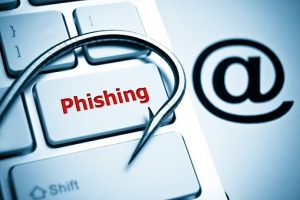 In the ever-evolving landscape of cybersecurity, protecting sensitive information and ensuring the integrity of digital communications has become paramount. Two essential tools in this endeavor are SPF (Sender Policy Framework) and DKIM (DomainKeys Identified Mail) records. Let's delve into what these records are, why they're crucial, and how they work together to fortify your email defenses.
In the ever-evolving landscape of cybersecurity, protecting sensitive information and ensuring the integrity of digital communications has become paramount. Two essential tools in this endeavor are SPF (Sender Policy Framework) and DKIM (DomainKeys Identified Mail) records. Let's delve into what these records are, why they're crucial, and how they work together to fortify your email defenses.
Understanding SPF Records
What are SPF Records – Sender Policy Framework (SPF) is an email authentication method designed to prevent email spoofing and phishing attacks. It's a DNS (Domain Name System) record that specifies which mail servers are authorized to send emails on behalf of your domain.
How Do SPF Records Work? – When an email is sent, the receiving mail server checks the SPF record of the sending domain. If the sending server's IP address matches one of the authorized IP addresses listed in the SPF record, the email is accepted. If not, the email might be marked as suspicious or rejected outright.
The Importance of SPF Records
Preventing Spoofing and Phishing: SPF records ensure that only authorized servers send emails on behalf of your domain, minimizing the risk of impersonation.
Enhancing Email Deliverability: Properly configured SPF records reduce the likelihood of your legitimate emails being flagged as spam or rejected by recipient servers.
Protecting Reputation: Email providers monitor SPF records as part of their spam filtering process. Maintaining a valid SPF record helps establish and maintain a good sender reputation.
The Importance of DKIM Records
Preventing Tampering and Forgery: DKIM ensures the integrity of emails, assuring recipients that the message hasn't been altered since it left the sender's server.
Authenticating Senders: It allows recipients to verify that the email is actually from the claimed sender, adding a layer of trust to your communications.
Improving Deliverability: Similar to SPF records, DKIM authentication can boost email deliverability rates by reducing the chances of your emails being marked as spam.
Keeping Email Secure
Safeguarding your email domain against threats is of paramount importance. SPF and DKIM records play crucial roles in this defense strategy. SPF ensures that only authorized servers send emails on behalf of your domain, while DKIM verifies the integrity and authenticity of your messages. By implementing these protocols, you not only bolster your security but also ensure that your legitimate communications reach their intended recipients without interference. Take the time to configure SPF and DKIM records, and you'll be taking a significant step towards a safer and more secure email experience.
If you want to work with experienced cyber security professionals that can help protect your domain by utilizing SPF, DKIM, and even more measures to stop spam, phishing, and other email based attacks, give us a call today!



